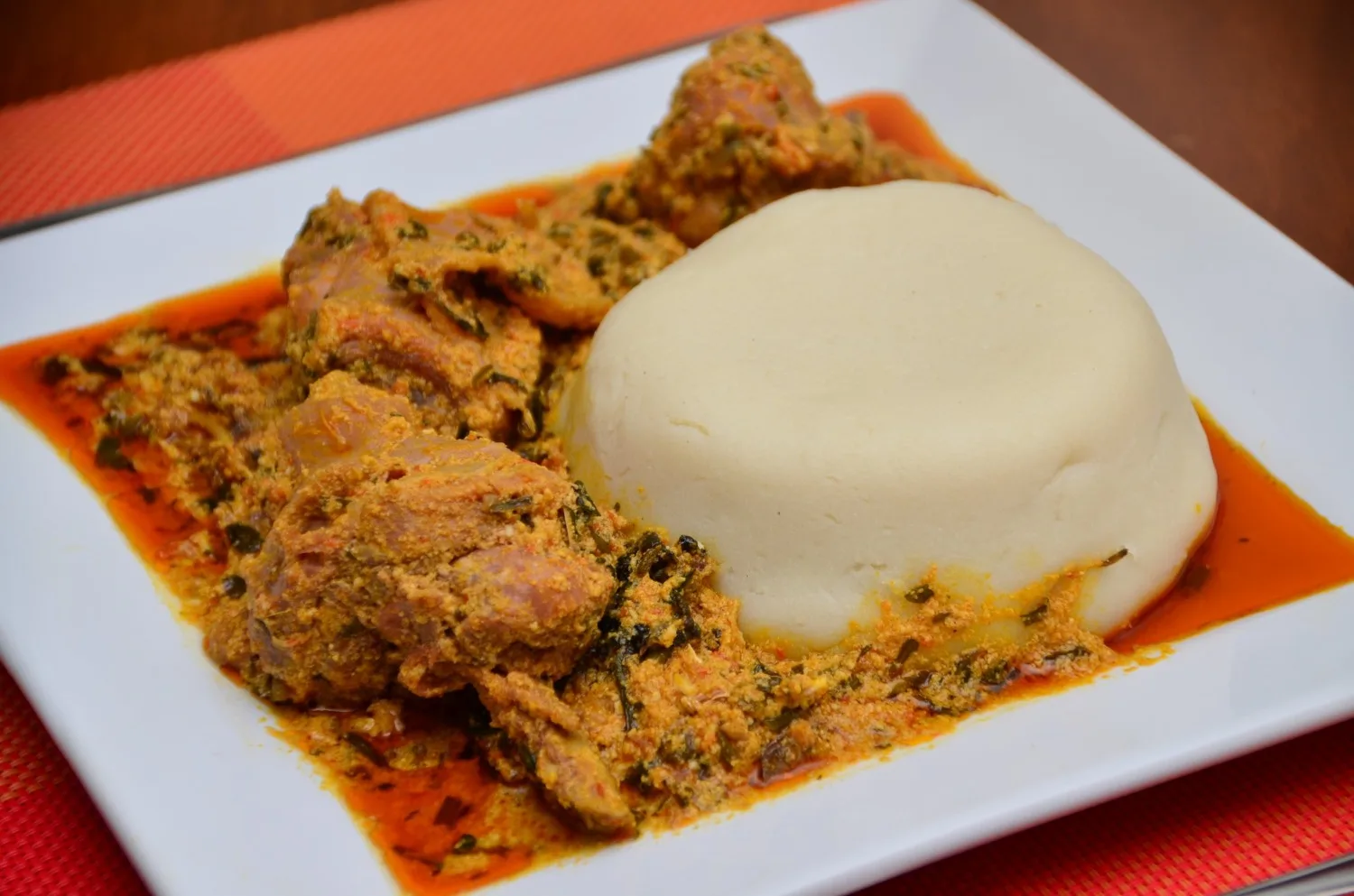Yoruba food goes beyond nourishment; it shows love, builds relationships, and preserves tradition. Meals like Iyan and Amala are not just dishes but symbols of unity, celebration, and cultural heritage. Eating together, often with hands, reflects the deep communal values and respect for elders that keep Yoruba culture alive.
Food in Yoruba culture is more than just nourishment. It’s a way of showing love, building relationships among family and friends, and keeping traditions alive. Every meal tells a story of family, community, and culture.
Yoruba people are known for their rich meals: the smooth Iyan (pounded yam) paired with thick, delicious Egusi soup, or the soft, dark Amala served with Ewedu and Gbegiri. These meals are symbols of unity, joy, and tradition, all served on a plate.
Each of these dishes has its own unique story. Iyan, for example, is often made during special occasions like weddings, birthdays, or naming ceremonies. It symbolizes celebration, something that brings everyone together around the table. On the other hand, simpler dishes like Eba (made from cassava) are consumed daily. While Eba is filling and nutritious, it is not usually served at parties.
Food as Love: More Than Just a Meal
Yoruba cooking is closely connected to the land. The key ingredients in Yoruba meals are Yam, cassava, plantain, peppers, vegetables, and palm oil. These ingredients are not only nutritious but also carry cultural values and beliefs. Preparing these dishes requires skill and patience. For example, pounding yam as a family activity promotes unity. During the preparation of Iyan, there’s always laughter and chatter as family members take turns pounding the yam until it reaches the perfect smooth texture, creating a sense of oneness within the family.
The Joy of Eating Together
In Yoruba culture, eating is a communal activity, full of warmth and love. Sharing a meal means sharing life. Families and friends gather around a large platter, eating from the same dish. There’s something special about everyone reaching in to take a bite of the food, smiling and talking as they enjoy it together. It’s a time to bond, laugh, and relax after the day’s activities.
Respect for elders is a big part of Yoruba eating traditions. The younger ones wait for the older members of the family to take the first bite, showing respect and honor. This is not just about following rules; it strengthens the bond between generations.
Food for Special Occasions
For Yoruba people, no celebration is complete without food. Whether it’s a wedding, a naming ceremony, or a funeral, there is always a feast. Dishes like Jollof rice, Pepper soup, Iyan, and Dodo (fried plantain) are served in abundance. These meals are not just about feeding guests; they are about showing love and hospitality. Serving a plate full of rich, flavorful food at a Yoruba gathering is an act of promoting our culture.
The Meaning Behind the Meals
Yoruba dishes carry deeper meanings. Some meals, like Iyan and Egusi soup, represent wealth and prosperity, especially when served at special events. During religious ceremonies, certain foods are offered to the gods as a way of asking for blessings. Food goes beyond being just a meal, it is a way of connecting with ancestors and the divine.
Eating with Hands: A Connection to Tradition
One of the most unique aspects of Yoruba eating culture is the practice of eating solid food with hands. While modern cutlery has found its place in many homes, traditionally, Yoruba people eat solid foods like Iyan, Amala, and Eba with their fingers. This practice is seen as a way to connect more deeply with the food and the culture. Before eating, hands are thoroughly washed, and the act of eating with fingers is viewed as both a practical and spiritual experience, allowing one to feel and enjoy the texture of the food.
Holding On to Traditions in a Modern World
While modern life has introduced fast food and new eating habits, such as eating swallow (solid food) in separate bowls or using cutlery, many Yoruba families still hold on to their traditional meals. In some Yoruba cities, fast food has become popular, but in many Yoruba homes, the pot of Ewedu and Gbegiri still simmers on the stove. The younger generation is learning from their elders not just how to cook but how to keep the culture alive through food.
Keeping the Culture Alive
In today’s fast-paced world, it’s more important than ever to hold on to the traditions that define who we are. Yoruba food is a cultural treasure, and passing it down to future generations means keeping the culture alive. Teaching children how to make Iyan, how to season Egusi soup just right, or how to prepare a delicious plate of Jollof rice is about more than cooking. It’s about sharing love, values, and history.
Food is not just something that fills the stomach; it fills the heart. It is an expression of love, respect, and tradition. When families sit down to eat together, they aren’t just sharing food, they’re sharing memories, stories, and an act that has been passed down through generations. As long as Yoruba meals are prepared in various homes, the culture will remain active and strong, as these meals serve as a reminder of where we have come from and where we are going. Through food, Yoruba people continue to celebrate life, love, and togetherness.





